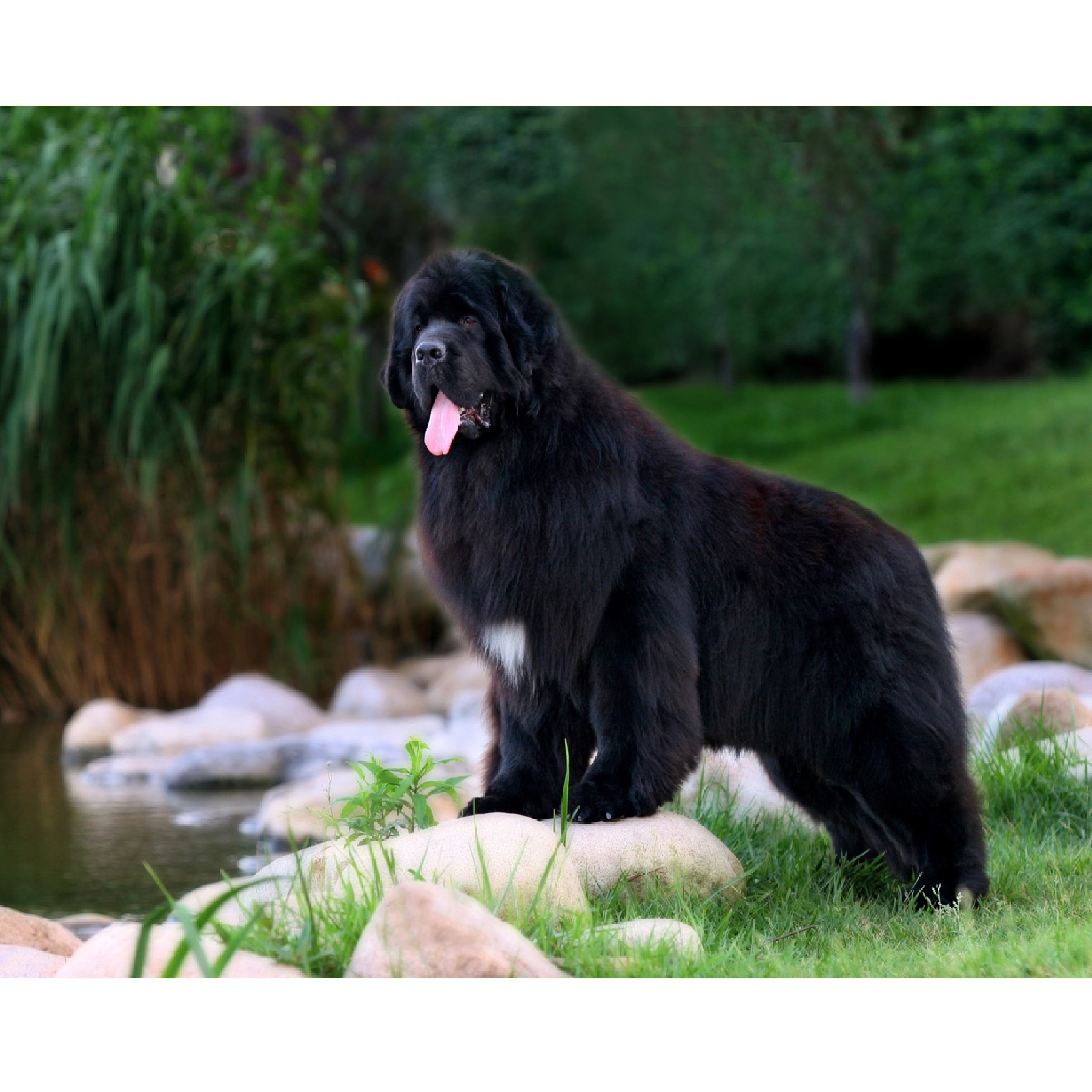Breeds
Newfoundland

GROUP 6 - UTILITY
Brief History
The Newfoundland is a large, strong dog who is a powerful swimmer. His origins are from Newfoundland in Canada. He was primarily a fishermans dog. They were used in the past to haul fishing nets due to their immense strength. The breed has been noted in history back as far as the 1700’s. The Newfoundland is well known for its gentle nature and his natural life saving instincts.
Average Life Span
When considering a dog, please realise that you are taking it on for its lifetime.
The average life span is 8 to 10 years
Temperament
Gentle, calm, stoic. Puppies can be energetic and rambunctious and can be rough and must be trained to behave appropriately
General Breed Description
The Newfoundland is a massive ,bear like dog, with medium coat. He is a powerful dog who usually loves to swim. Newfoundland’s need company, human or canine, they see themselves as part of the family and can become destructive if left alone. Not a breed to be kept outside alone. The colours are black, brown, white & black (lovingly called Landseer, not to be confused with the Landseer (ECT) breed). Solid colours can have small amounts of white on tips of toes, chest and tip of tail.
Coat and Care Requirements
The Newfoundland has a double coat, the outer coat has an oily texture, with a thick undercoat. They have furnishings on legs and tail. Regular, weekly grooming is needed, but more during coat moulting.
Size
Height: Males: 71cms (28ins), Females 66cms (26ins).
Weight: Males 64 to 69kgs, Females 50 to 54.5kgs.
Health
All breeds have individual health issues. When speaking to breeders it is recommended you enquire about the breed’s health and what health testing the breeder does. The Newfoundland is generally a healthy breed, however health conditions do occur occasionally. These may include Hip Dysplasia (HD), Elbow Dysplasia(ED) and Cystinuria. Careful rearing is crucial, so follow advice/guidelines given by the breeder.
Suitability
Families with older children, couples or singles. They are a very smart breed, always willing to learn. The Newfoundland needs training from young to ensure a gentle adult. Regular daily walks are needed.
In Conclusion
Now you know a little more about this breed. If you have decided this is the dog for you and wish to investigate further, please contact the Breed Club or Dogs Victoria. They will be able to give you information about available puppies and also suggest dog events where you can see the breed and speak to breeders. In this way you will gain a better perspective of the breed and its needs. With any breed of dog, it is important to research and determine suitability for your lifestyle before committing to a puppy which will be a part of your family for many years to come.
Whilst many breeds are recommended for families, it is imperative that when children are with dogs they are supervised at all times. Basic obedience training is a vital part of dog ownership.
Dogs Victoria is about the responsible ownership of all dogs and in particular the preservation of pure breeds.
Link to Dogs Australia Breed Standard: https://dogsaustralia.org.au/breed/detail/182




